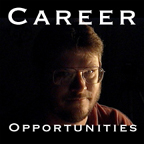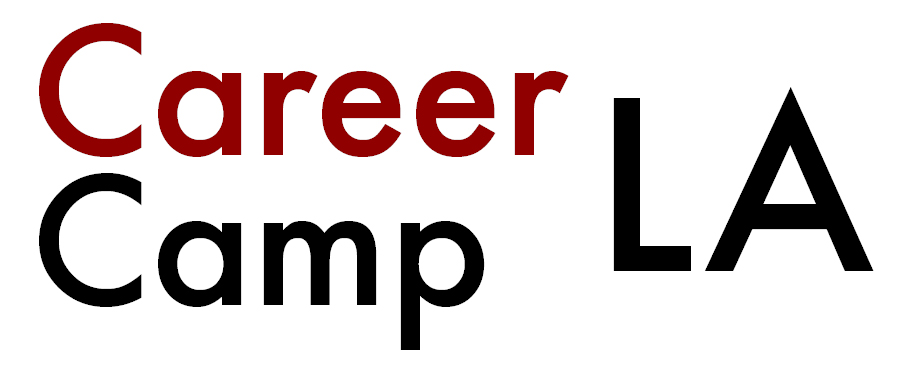“That’s not the way we do things here. That will never work in our industry. It wasn’t invented here so it can’t be any good. Things will never change around here.”
How often do you hear phrases like this around your own workplace? If it is like most companies, you probably hear it quite often. Maybe it isn’t laid out so clearly or obviously, but it can be seen the in the action (and inaction) of management and therefore in employees. In the worst cases, it is something that is felt rather than spoken aloud. It is an undercurrent which no one can seem to escape. Instead of changing with the times — or economic necessity — companies plod along as they always have until the time when they — seemingly suddenly — go out of business. Often afterwards people will stand around and wonder , “What went wrong?” “How could this have happened to us?”
Podcast: Play in new window | Download
Subscribe: Apple Podcasts | RSS
April 20, 2012 9a-Noon
LA Southwest College
The answer, of course, is quite simple. Like many companies, they kept returning to the same well for ideas even though they knew that that well was running dry. They couldn’t conceive of a time when they would be out of great ideas, so they felt that the collapse happened suddenly when, in reality, it had been in process for years. If they had been paying attention and not wallowing in denial, they would have understood the importance of looking outside their own industry, their own experiences, their own store of knowledge for great ideas.
Often when I am talking with owners of small companies or employees of large corporations, I am met with the inability for them to see outside their own business or industry. They immerse themselves in white papers, reports and surveys detailing how everyone in their industry is performing and the methods they are using. While there is certainly something to be gained from knowing the “state of the industry” it can also be stifling if that is the only information you consider. As we have seen in the past several decades, it isn’t just individual companies that can go down the wrong business path, but entire industries. In these cases, looking at and following industry standards could be the worst thing you could continue to do. You are no longer thinking for yourself, you are simply following other companies down the road to ruin.
I have seen this demonstrated in conference and conventions I have attended over the years. When the conference is narrowly focused, “groupthink” seems to set in, with people simply agreeing with those around them or thinking the same old thoughts. For me, wide-ranging conferences like TED (and even more so, unconferences like BarCamp) always leave me overflowing with new ideas and thoughts, due to the energy that occurs when unlike ideas bump up against each other.
This scenario is why it is so important to look beyond your own industry, your own market, your own area of expertise for great ideas. You never know where the next great idea is coming from, so you must always keep your attention tuned for anything you might apply in unique ways in your own business. Maybe a new theory in process management has changed the textile industry. You might not be able to apply that theory in exactly the same way, but I can almost guarantee that you can find something within the new theory that applies directly to your own business. Has the banking industry figured out a new way to fund capital expenditures? Maybe you could use some version of that, too. Has a regional theater developed a new experience for their audience that is boosting attendance and revenue? How can you adapt that to dazzle your own customers.
Too often, I hear businesses and organizations talking about sharing information among their own, narrow, industry. They create a consortium or conference dedicated to their very specific market. In my eyes, this is exactly the wrong direction. For me, great new ideas spring up when unlike entities rub against one another. It is when you have the artist talking to the programmer talking to the banker, talking to the business owner talking to the teenager that sparks begin to fly. Out of such interactions come the great new ideas we all need today. I know that when I am talking with someone with a different life experience, a different life focus, a different expertise, it often generates many new thoughts and ideas in my own mind.
This process can seem quite random at times, — and it often is — but that is exactly what makes it so powerful. These random interactions cause new ideas to rub up against each other and spin off entirely new thoughts you would never have developed on your own. There is only so much you can do as you sit alone in your office. You can only dream up so many ideas. You need new input — new experiences, new thoughts, new technologies, new people — to give more fuel to your creative fire. In fact, your mind often gives you clear notice when it needs more input. You can feel stagnated, tired, burn out. You have used up all your internal creativity and need to go find some new input, some new fuel to get it burning again. Go to an art gallery. Listen to music. Go to a local technology meetup on a topic entirely outside your area of expertise. Get together with friends who work outside your industry. Do whatever it takes to spark new thoughts and actions.
You should see the concept of “Not invented here” as a clear sign of something you need to investigate. Instead of dismissing the idea as something unusable and unimportant, dig in and see what it might have to offer you. In today’s world, “Not invented here”, might just mean something even better.
***




